The following article is based on an excerpt from the author's recently published e-book, What the Plus! Google+ for the Rest of US (Version 2.0). The e-book is free to the first 600 MarketingProfs readers who download it by July 12.
Yet Another Social Media Platform
More than 850,000 people follow me on Twitter, and 171,000 people subscribe to my Facebook account, so I'm not a newbie to social media. Like many people, I need another social media service like I need more email... or my dog to throw up on my carpet.
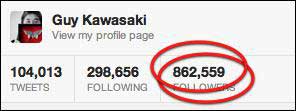
Figure 1. My Twitter stats: really, I'm not a newbie to social media.
And yet I jumped on Google+ (after I figured out how to publicly share posts, anyway). I spend two hours a day on Google+ because doing so is enjoyable and good for my brand as a writer, speaker, and startup-company adviser. Or, more truthfully, using Google+ is so enjoyable that I rationalize that it's good for my brand.
In addition to my fondness for its members and their comments, Google+ embodies many appealing attributes that make social networking better. Here's how Google+, Facebook, Twitter, and Pinterest compare along some parameters that are important to me:
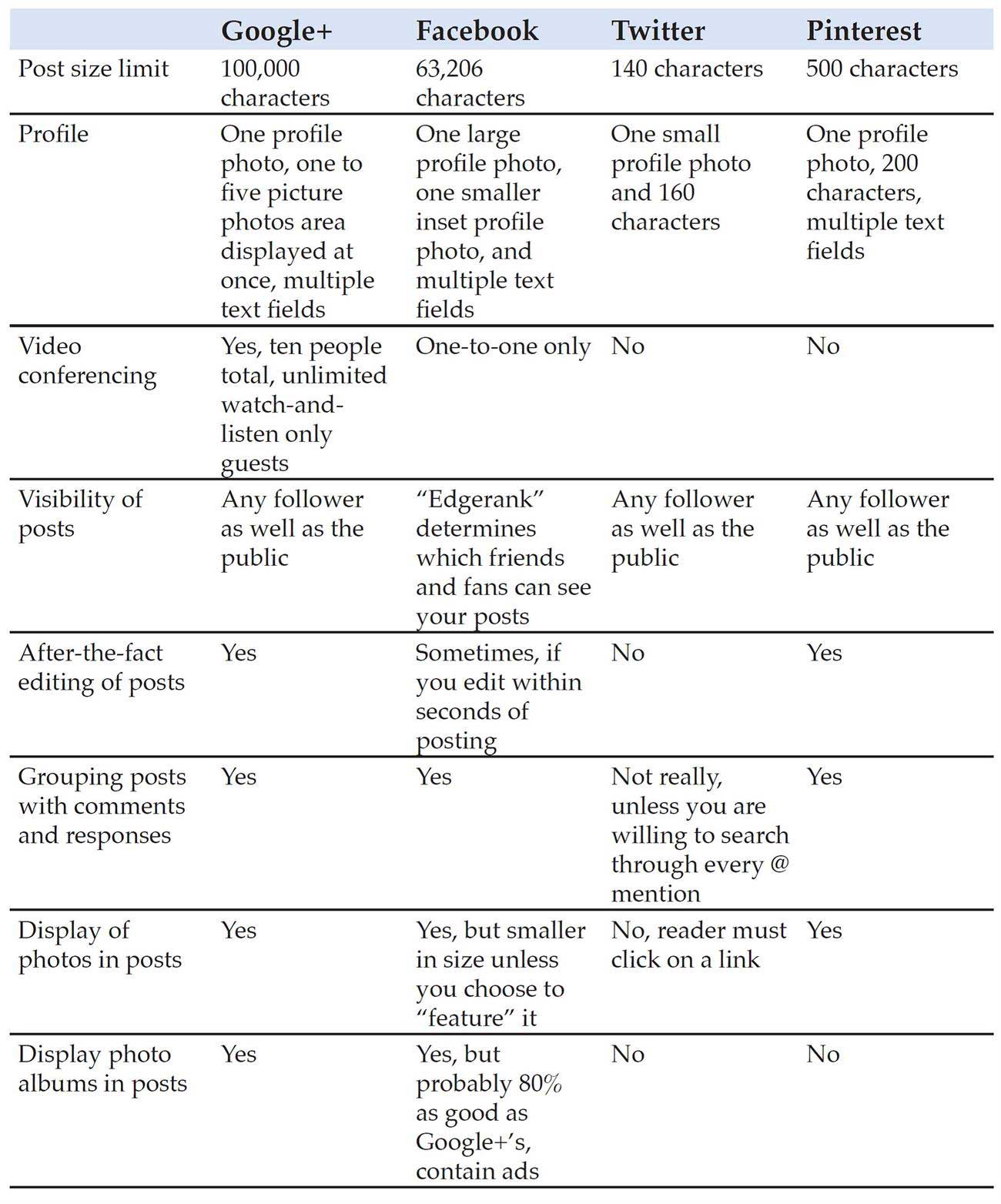
Google+, Facebook, Twitter, and Pinterest are in a constant features race, so this chart is ever changing. However, the chart shows a trend: Google+ has powerful and sophisticated features that the competition doesn't, and Google+ does things in ways that make more sense to me.
For example, did you know that all your friends and followers on Facebook cannot see your updates? The following Facebook Insights report shows that only 6,700 of the 33,754 fans of my Enchantment book page could have seen my updates. (Some studies indicate that only 12% of your buddies on Facebook can see your updates.) By contrast, 100% of my followers on Google+ can see what I post there.

Figure 2. Facebook Insights Report.
Also, Facebook groups individual photos from separate posts, and makes one post out of them. For example, during a visit to the University of Oregon, I posted three photos over an eight-hour period. Each photo post was separate, and Facebook decided to glom them together. If I wanted them together, I would have created an album. I wanted separate posts.
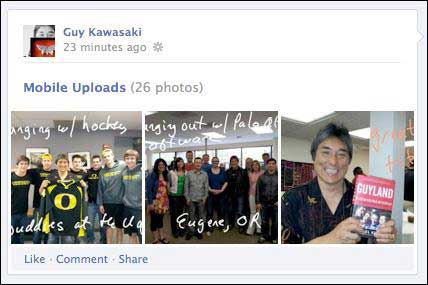
Figure 3. Facebook decided to combine three photo posts into one.
Google+ would win if Facebook and Twitter launched today. However, Facebook and Twitter started more than five years before Google+, and they amassed large customer bases before Google+ entered the market. A good analogy is that people don't enjoy a small party (Google+) where they don't know anyone, compared with a big party (Facebook and Twitter) where they know lots of people.
My counterargument is that it's your own fault if you don't have a good time at a small party where many beautiful and interesting people are hanging out.
Rational Exuberance
If Google+ was "two guys/gals in a garage with seed funding," I would adopt a wait-and-see attitude, but that is hardly the case. Although new projects have failed at Google before (like at many large companies), that doesn't mean search is the only thing Google can do.
"Google+ is Google itself. We're extending it across all that we do—search, ads, Chrome, Android, Maps, YouTube—so that each of those services contributes to our understanding of who you are."
—Bradley Horowitz, vice-president, products for Google+, Google. Wired, September 27, 2011
As my mother used to say, "Some things need to be believed to be seen." So, here is why I believe in Google+ even before I've seen 800 million people (the number that Facebook bandies about) get on it.
1. Google has a track record
Google has delivered better mousetraps when most people didn't think better mousetraps were necessary. For example, Yahoo, Inktomi, and Alta Vista were good enough for searching, and Hotmail was good enough for email. Google's record isn't flawless, but no company's is. Even Apple had the Apple III, LISA, Newton, and Macintosh Office.
2. Google is dead serious about this business
Insiders tell me Google+ is one of the top priorities of Google. The social network is not an experiment or project buried within another business unit. The guy who runs Google+, Vic Gundotra, reports directly to Larry Page, Google's chief executive officer. Google+ is a core part of the functionality of all of Google, and it would be astoundingly embarrassing to Google if Google+ were to fail.
3. Google has infinite money and talent
Infinite money and talent doesn't mean an organization is infallible, as Webvan ($1.2 billion invested so people could order asparagus online), Lehman Brothers, and Enron have proven. But infinite money and talent doesn't guarantee you'll fail, either. Google is assaulting two big companies on their established turfs, so money and talent are necessary in this battle.
4. Google owns the river
In ancient lore, one of the labors assigned to Hercules was to clean the huge Augean stables in a day. Hercules accomplished that herculean task by diverting the Alpheus and Peneus rivers through the stables. Google owns one of the biggest rivers of Internet traffic—search—and it can divert people to Google+ anytime it wants. For example, when Google placed an arrow on its search page pointing to the button to click to join Google+, hundreds of thousands of people joined.
5. Google owns the playing field
Google can do more than merely tilt the playing field, because it owns the playing field. For example, Google integrated Google+ into search results, and Samsung phones and tablets come with the Google+ application installed. Google bought Motorola's phone business, so we can assume similar integration will happen with Motorola phones and tablets, too. Gmail account holders automatically have a Google+ account. In the future, Chrome, Google's browser which recently surpassed Firefox in popularity, will incorporate Google+ also.
When you add up those factors, Google brings indomitable power to Google+—roughly equal, I'd say, to Apple's having Steve Jobs as a CEO. (This statement is a compliment to both Google and Steve.)
Perceptions, People, Pictures, or Passions?
The key to social media is to use the right tool for the job. Not everyone should use Facebook or Twitter or Pinterest or Google+, because everyone's needs are different. Moreover, those services are not mutually exclusive, so you can use each for different purposes if you wish.
Still, the question remains, Should you use Google+? Here's how to decide:

Figure 4. For Twitter, think Speakers' Corner, Hyde Park, London, where on Sunday afternoons, anyone can get up on a soapbox and speak about almost anything.
Twitter = Perceptions. Twitter is a great tool for receiving or sending immediate perceptions, such as witnessing news and events. In other words, if you want to learn that an earthquake has struck Chile before CNN, and you like getting updates from Chileans at ground zero, then Twitter is for you. In short, Twitter is for real-time perceptions.
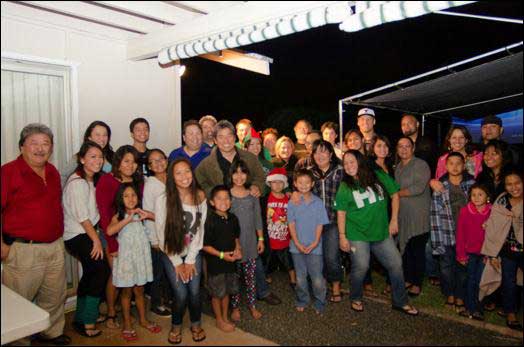
Figure 5. For Facebook, think "Best Friends Forever."
Facebook = People. Facebook is the way to learn what's going on in the lives of people you already know (friends, relatives, and colleagues). Facebook is great for learning that a friend's cats rolled over, that she went to a great party, or that she had sex, kittens, or children. In short, Facebook is for people.
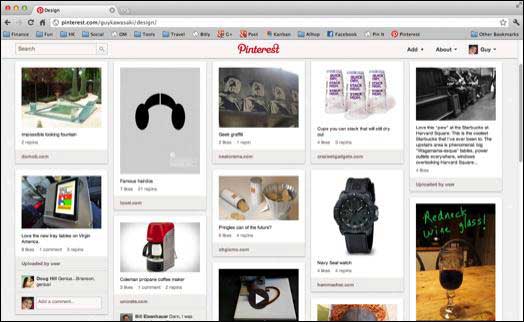
Figure 6. For Pinterest, think pictures of cool stuff.
Pinterest = Pictures. Pinterest is an online bulletin board where people post pictures of what they consider beautiful, cool, and neat. Where pictures are 5% of the action on Twitter and 25% of the action on Facebook and Google+, they are 95% of the action on Pinterest. Pinterest is light, playful, and fun. In short, Pinterest is for pictures.
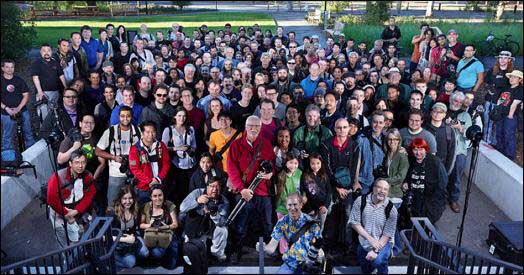
Figure 7. For Google+ think: meeting people who share your passions (photo credit: Peter Adams).
Google+ = Passions. Google+ enables you to pursue your passions with people you don't know. Your 200 friends and family on Facebook may not share your passion for photography, but on Google+ you can have a blast with a community of photographers. In short, Google+ is for passions.
Conclusion
Do you want to enhance and expand the number of people who share your passions and interact with them via posts and comments? If so, focus on Google+. If you don't, stick with Facebook, Twitter, and LinkedIn until Google+ reaches critical mass. Or, if you just want to have fun posting pictures of cool stuff, use Pinterest.

Figure 8. The Social Media Decoder by Dan Roam, founder of the Napkin Academy and author of The Back of the Napkin, Unfolding the Napkin, and Blah Blah Blah.
Or, you may decide you need multiple services: Twitter for perceptions, Facebook for people, Pinterest for pictures, and Google+ for passions. That's OK, too.




